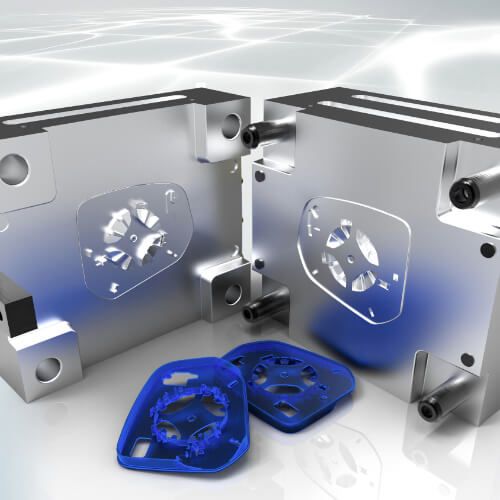Solutions for Injection Molded Plastics
A range of solutions for engineering, design validation, mold making, inspection and production features.

Master plastic materials from design to production, reducing time to market.
Quickly find the right tools to accurately model material behavior, seamlessly produce molds, and measure all parts for maximum quality, minimizing the risk of reinforced plastics warping unexpectedly during the production process. Produce plastics of outstanding quality.
A powerful material modelling ecosystem
The material modeling ecosystem gives you access to material cards directly from material suppliers and enables you to create your own cards in minutes and start stimulating.
Material Modeling
CT Analysis
Use material modeling to accurately design fiber-reinforced plastic parts right first time, saving both unnecessary time and cost caused by multiple design iterations.
Products used
Plastics Gate Optimizer
Plastics Gate Optimizer links the manufacturing process, anisotropic material properties, and part performance to anticipate the impact of fibre orientations, weld lines, and other manufacturing elements on the part's stiffness and failure.
Virtual manufacturing and costing
Material modeling
Structural analysis
Reduce time in setting up, running and post-processing simulation DOE of new design by 75%.
Reduce time to market by precisely validating as-manufactured part performance, thus minimizing the need for physical prototyping.
State-of-the-art material modelling technology in all design loops.
The Nexus collaborative environment allows project teams to share data (i.e. enabling designers and mould makers to discuss possible gate locations).
Mold design and manufacturing
Improve part manufacturability and quality, and drastically shorten the time to market with an integrated chain of advanced tools, including digital mold compensation.
Mold and Die Design & Manufacturing
Virtual Manufacturing & Costing
Integrated workflow to create detailed mold drawings and BOMs, validate the design with flow simulations, generate machining toolpaths and compensate warpage from simulation or scanned data.
Products used
Quality inspection of plastic parts
Reduce scrap rates by rapidly verifying the connector housing geometry and internal features such as cavities and porosity. Use optical or CT scans to collect precise 3D geometry data of the full part, providing complete article inspection and documentation of dimensions and tolerances (GD&T).
Dimensional Analysis
CT Analysis and Dimensional Analysis
Automated Inspection
Process Control and Analytics
Products used
© 2025 Hexagon AB and/or its subsidiaries